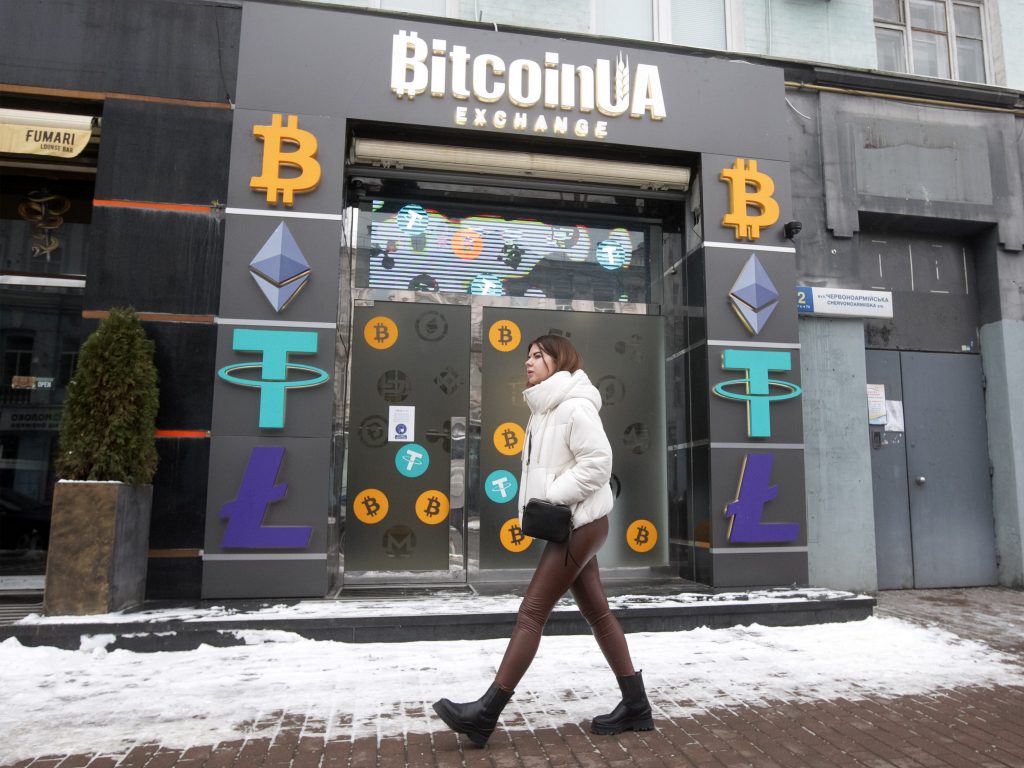- A Kyiv resident wanted to protect his life savings to avoid risks from Russia's war, per the Guardian.
- He put the $10,500 sum into terra, a "stable" crypto-token that later crashed in value.
- The Ukrainian's account is one of many stories of retail investors being burned by the crypto crash.
Yuri Popovich thought it seemed like a good idea at the time.
Russia was invading Popovich's home country, Ukraine. The Kyiv resident wanted to protect his life savings of about $10,500 from a currency collapse or other risks related to the war, he told the Guardian in an account published Sunday. It's estimated that the cost of living in Ukraine was about $467 per person in May, according to Numbeo.
The International Monetary Fund sounded the alarm in March about how food and oil prices were increasing because of the war. "Higher prices for commodities like food and energy will push up inflation further, in turn eroding the value of incomes and weighing on demand," the organization wrote in a blog post.
The cryptocurrency market seemed on a stratospheric ride, Popovich thought, so why not convert his savings into these digital tokens to store their value?
According to the Guardian, the Kyiv resident's answer was a form of cryptocurrency called a "stablecoin," per the Guardian. Theoretically, stablecoins are backed by fiat currency and hard assets, including government bonds or gold. This is supposed to prevent the tokens from becoming too volatile.
"It was impossible and unsafe to store funds in the form of banknotes," Popovich told the outlet, which made stablecoins an attractive option.
Popovich chose a stablecoin called terra.
But terra isn't a typical stablecoin tied directly to a hard asset. Instead, it's an algorithmic stablecoin, meaning it uses algorithms to peg itself to a fiat currency or asset.
Earlier this month, terra's algorithm lost its peg to the US dollar, and the stablecoin's value plummeted.
Within a few weeks of Popovich converting his life savings into terra, the token went into a free fall. In early May, hefty selling of terra forced its value down. That prompted anxious investors to also dump their holdings of terra, creating a scenario similar to that of a bank run. By Tuesday, a terra token was only worth about $0.00017.
Experts are still pondering what caused terra's initial unraveling, but some say it was a coordinated attack on the token.
Terra's crash wiped out most of Popovich's savings, and his terra tokens are now worth less than $500, the Guardian said after viewing screenshots of Popovich's bank account.
Calling the lost amount "colossal," Popovich said he stopped sleeping and lost almost 9 pounds. "I often have headaches and anxiety. My wife still doesn't know about this loss. I don't know how to tell her," he told the Guardian.
Insider was unable to independently verify Popovich's account.
Terra's crash has caused the global cryptocurrency market value to shrink by $500 billion
Popovich is among thousands of retail investors who have been burned by cryptocurrencies in recent weeks. Terra's free fall exacerbated fears in the broader cryptocurrency market, which had been reeling from rising interest rates and tightening financial conditions.
The global cryptocurrency market capitalization has lost about $500 billion since the start of terra's unraveling in early May, according to CoinMarketCap data.
Terra's crash prompted at least one Reddit user to share the phone numbers of suicide-prevention helplines around the world.
"Here I like to emphasize again, don't invest money you need to survive/live the next weeks/months/even a year. Don't invest in the hopes of having more next month. This is a very volatile market nobody knows what's gonna happen," said the user.
Billionaires were also not spared from the crash, either. Changpeng Zhao, the wealthy founder of the world's largest crypto exchange Binance, joked last week that he was "poor again" after Binance's investments in luna, a sister token that has its value pegged to terra's, crashed to about $2,200 from $1.6 billion a month ago.
